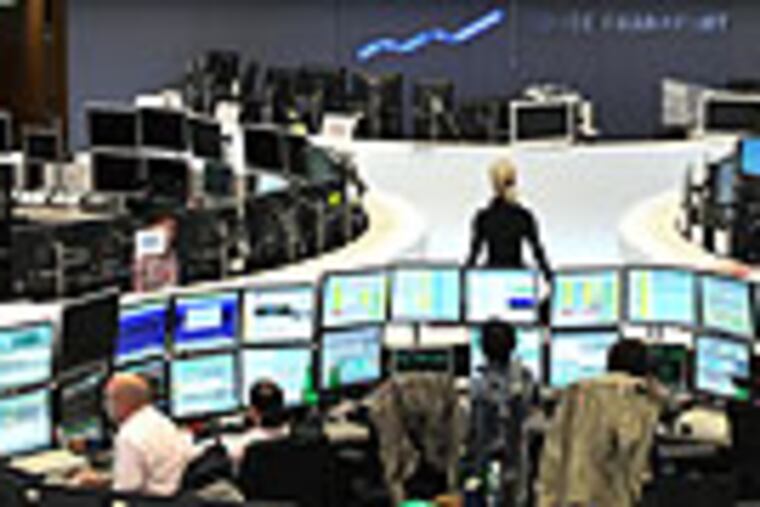Europe debt crisis stirs recession fear
BERLIN - A dark cloud has settled over the world's financial markets, as growing numbers of people conclude the debt crisis in Europe could hammer global growth - and even bring back recession barely a year after a patchy recovery took hold.

BERLIN - A dark cloud has settled over the world's financial markets, as growing numbers of people conclude the debt crisis in Europe could hammer global growth - and even bring back recession barely a year after a patchy recovery took hold.
Government officials - whose job it is to boost confidence - downplay that risk, but many economists are warning that a much-feared "double-dip" recession could be starting from Europe.
It would be the next ugly chapter in the global financial and economic turmoil that began three years ago. And now as then, what is striking is the interconnectedness of everything - how near-default in Greece and weeks of dithering in Germany have affected commodities such as oil and gold and, with demand and confidence waning, have bludgeoned stock markets around the world in a way that rattles ordinary people saving for retirement from Korea to California.
In 2007, the bad debt connected to repackaged subprime mortgages started undermining banks and hedge funds, and by early 2008, confidence in the system was slipping fast.
This time it is the exposure of banks everywhere to sovereign debt - the IOUs of governments - whose value has been falling for months.
The sheer size of the European economy is a factor, said Mauro F. Guillen, director of the Lauder Institute at the Wharton School of the University of Pennsylvania. "If European demand goes down, global growth will slow down," he said.
Having already deployed their best countermeasures - stimulus spending and central bank interest rate cuts - governments everywhere may be out of ammunition.
Stephen Lewis, a London-based economist with Monument Securities, spoke for many of the pessimists Friday after a week of market turmoil in Europe when he said he saw "no guarantee that the upswing in the global economy from 2009's low point will be sustained."
At the heart of the crisis are fears that indebted eurozone governments will not be able to pay what they owe. Those fears have sent the prices of government bonds - many of them held by big banks in Germany and France - plummeting. Europe also faces low growth prospects because governments must cut back on spending to pay down heavy debt loads.
If banks in Europe and beyond suffer losses on marked-down government bonds, this would then make them afraid to lend the money that businesses need to operate and expand, choking off growth - a replay, in a sense, of the freezing of credit markets after the September 2008 collapse of the U.S. investment bank Lehman Bros., which led to a worldwide recession. The global economy shrank by 0.6 percent in 2009, its first dip since World War II.
As fear spreads, stocks and the price of oil, both signs of expectations for future economic growth, have been drawn into the downdraft. And gold, traditionally a safe haven, has hit ominous all-time highs.
Most of the world's leading stock markets are below where they started the year as investors revise down their growth expectations for the global economy.
Daniel Tarullo, a governor with the U.S. Federal Reserve, told a congressional House subcommittee Thursday that Europe's crisis was a "potentially serious setback."
A sell-off in the stock market this week signaled, among other things, a belief that the economy is headed for a slowdown later this year, after having expanded by nearly 12 percent in the first quarter from the same quarter the year before.
Germany's embattled Chancellor Angela Merkel, whose government is widely blamed for the dithering that so amplified the collapse of confidence, suggested this week that she understood the heavy stakes.
"The euro is in danger," she told lawmakers, urging them to approve Germany's portion of the wider bailout plan. "If we do not avert this danger, then the consequences for Europe are incalculable, and then the consequences beyond Europe are incalculable."
The lawmakers did as she asked.